Blood Sugar
How to submit an article:
- Registered users can submit any published journal article that has a unique DOI (Digital Object Identifier) name or link to Research Hub.
- For example, you can paste the full DOI link:
https://doi.org/10.1109/5.771073or just the DOI name:10.1109/5.771073into the field above and click submit. - The person who is first to submit a valid article to Research Hub will forever be credited for it, and every article submission earns you +6 Research Points.
Also known as: Blood Glucose, Fasting Blood Glucose, Glycaemic Control, High Blood Sugar
Related Topics
Published research studies are articles that present the findings of original research that has undergone a peer-review process and has been made publicly available in scholarly journals, books or other media.
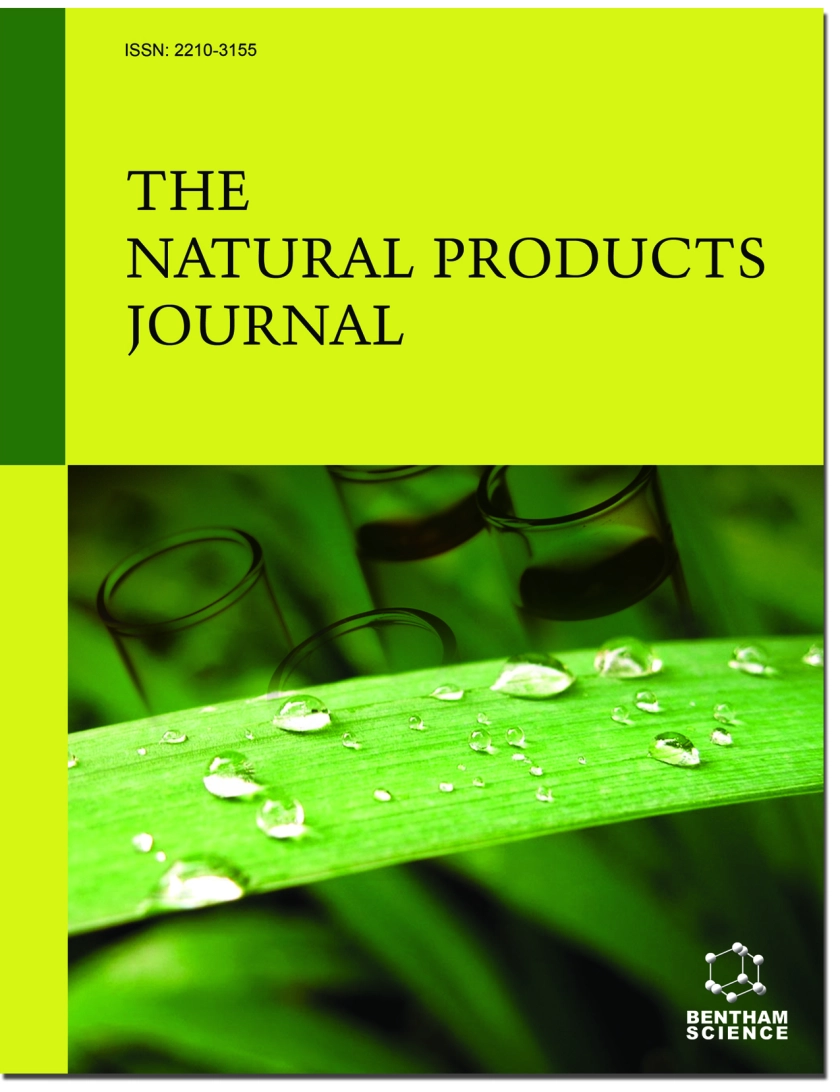
Pumpkin Seeds (Cucurbita spp.) as a Nutraceutical Used In Various Lifestyle Disorders
2024 Feb The Natural Products Journal Wal A, Singh MR, Gupta A, Rathore S, Rout RR, Wal P
Review Article Anticancer Blood Sugar Pumpkin Seed Antioxidant Cardiovascular Disease Depression Anti-ParasitePumpkin seeds are recognised for their medicinal, nutritional, and cosmetic benefits, including anti-diabetic, heart disease prevention, anti-cancer, and antioxidant qualities.
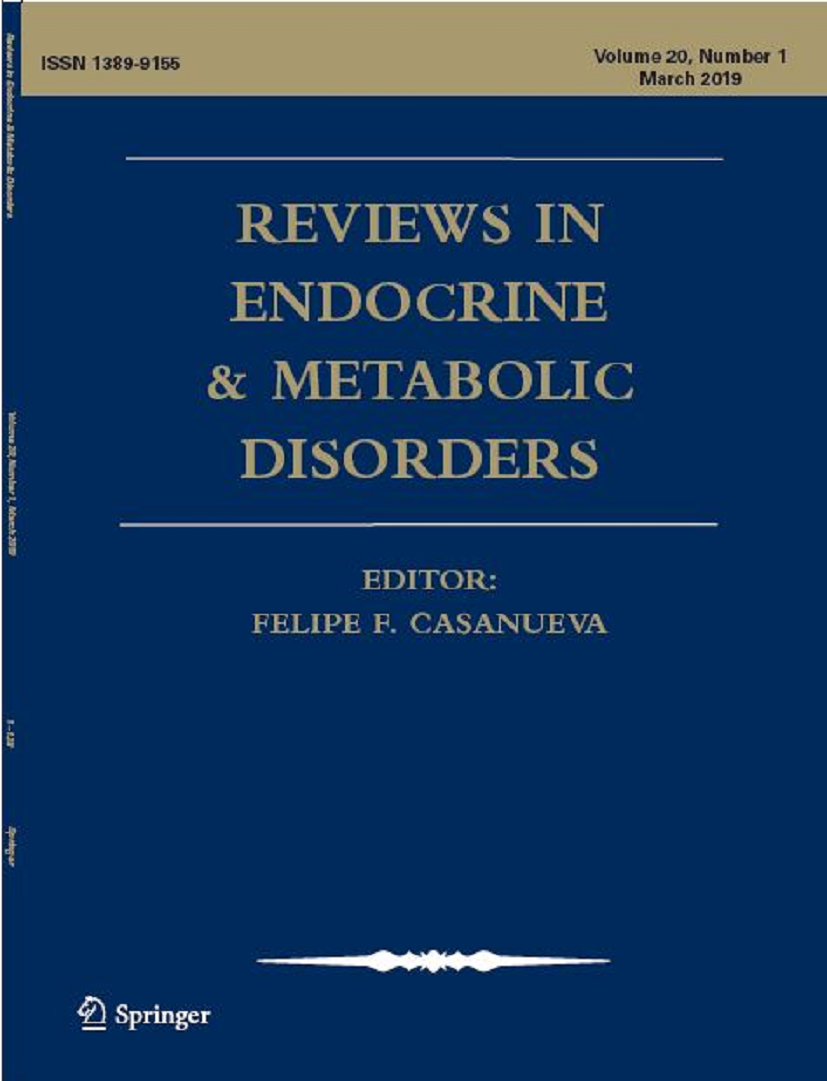
Circadian alignment of food intake and glycaemic control by time-restricted eating: A systematic review and meta-analysis
2023 Nov 22 Reviews in Endocrine and Metabolic Disorders Rovira-Llopis S, Luna-Marco C, Perea-Galera L, Bañuls C, Morillas C, Victor VM
Time-restricted eating (TRE) demonstrated no significant effect on fasting glucose overall, but it did reduce HbA1c levels and fasting insulin, with a tendency to decrease HOMA-IR. The timing of food intake was identified as a crucial factor, with early TRE (eTRE) significantly reducing fasting glucose levels in subjects with overweight or obesity.
Systematic Review Meta-Analysis Intermittent Fasting Circadian Rhythm Blood Sugar Glycaemic Control
Effects of an Unripe Avocado Extract on Glycaemic Control in Individuals with Obesity: A Double-Blinded, Parallel, Randomised Clinical Trial
2023 Nov 17 Nutrients Zhao L, Ingram DK, Gumpricht E, De Paoli T, Teong XT, Liu B, et al.
Randomised Controlled Trial Glucose Blood Sugar AvocadoConsumption of unripe avocado extract in the diet may lower postprandial insulin levels in overweight adults with previously elevated insulin levels.
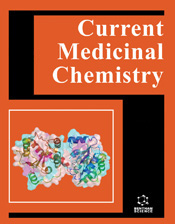
The Effects of Apple Cider Vinegar on Cardiometabolic Risk Factors: A Systematic Review and Meta-analysis of Clinical Trials
2023 Oct 11 Current Medicinal Chemistry Dadkhah Tehrani S, Keshani M, Rouhani MH, Moallem SA, Bagherniya M, Sahebkar A
Systematic Review Meta-Analysis Apple Cider Vinegar Blood Sugar Cholesterol HbA1CConsumption of apple cider vinegar significantly improves certain risk factors for cardiometabolic syndrome, notably fasting blood glucose, glycosylated hemoglobin, and total cholesterol.
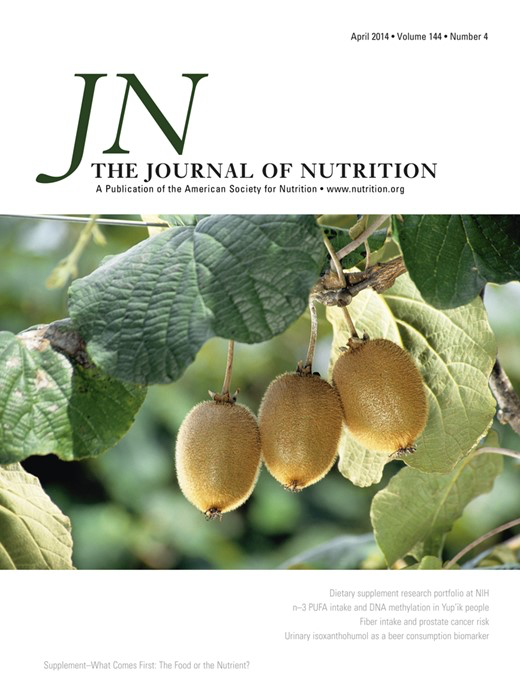
Associations between Metabolomic Biomarkers of Avocado Intake and Glycemia in the Multi-Ethnic Study of Atherosclerosis
2023 Oct The Journal of Nutrition Wood AC, Goodarzi MO, Senn MK, Gadgil MD, Graca G, Allison MA, et al.
Cohort Study Blood SugarAvocado consumption is linked to better glucose regulation, with metabolomic biomarkers of avocado intake showing even stronger associations with lower glycemia.
Research insights are moderated by the Research Hub team and offer an at-a-glance overview of interesting research findings.

2024 The Natural Products Journal
Pumpkin seeds are recognised for their medicinal, nutritional, and cosmetic benefits, including anti-diabetic, heart disease prevention, anti-cancer, and antioxidant qualities.
Review Article Anti-Parasite Anticancer Antioxidant Cardiovascular Disease Depression
Pumpkin Seeds (Cucurbita spp.) as a Nutraceutical Used In Various Lifestyle
Disorders
Wal A, Singh MR, Gupta A, Rathore S, Rout RR, Wal P

2023 Nutrients
Consumption of unripe avocado extract in the diet may lower postprandial insulin levels in overweight adults with previously elevated insulin levels.
Randomised Controlled Trial Avocado Glucose
Effects of an Unripe Avocado Extract on Glycaemic Control in Individuals with Obesity: A Double-Blinded, Parallel, Randomised Clinical Trial
Zhao L, Ingram DK, Gumpricht E, De Paoli T, Teong XT, Liu B, et al.

2023 Current Medicinal Chemistry
Consumption of apple cider vinegar significantly improves certain risk factors for cardiometabolic syndrome, notably fasting blood glucose, glycosylated hemoglobin, and total cholesterol.
Systematic Review Apple Cider Vinegar Cholesterol HbA1C
The Effects of Apple Cider Vinegar on Cardiometabolic Risk Factors:
A Systematic Review and Meta-analysis of Clinical Trials
Dadkhah Tehrani S, Keshani M, Rouhani MH, Moallem SA, Bagherniya M, Sahebkar A

2023 The Journal of Nutrition
Avocado consumption is linked to better glucose regulation, with metabolomic biomarkers of avocado intake showing even stronger associations with lower glycemia.
Cohort Study
Associations between Metabolomic Biomarkers of Avocado Intake and Glycemia in the Multi-Ethnic Study of Atherosclerosis
Wood AC, Goodarzi MO, Senn MK, Gadgil MD, Graca G, Allison MA, et al.
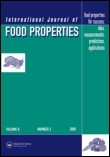
2023 International Journal of Food Properties
Plums, which are rich in bioactive compounds, antioxidants, and vitamins, can help maintain blood glucose level, bone health, heart health and even treat certain cancers.
Review Article Antioxidant Bone Health Plum
A comprehensive review on the availability of bioactive compounds, phytochemicals, and antioxidant potential of plum (
Prunus Domestica
)
Ayub H, Nadeem M, Mohsin M, Ambreen S, Khan F, Oranab S, et al.
Review Articles
Review articles summarise and critically evaluate the current state of research on a specific topic or field by synthesising multiple primary research studies.

Pumpkin Seeds (Cucurbita spp.) as a Nutraceutical Used In Various Lifestyle Disorders
2024 Feb The Natural Products Journal Wal A, Singh MR, Gupta A, Rathore S, Rout RR, Wal P
Review Article Anticancer Blood Sugar Pumpkin Seed Antioxidant Cardiovascular Disease Depression Anti-ParasitePumpkin seeds are recognised for their medicinal, nutritional, and cosmetic benefits, including anti-diabetic, heart disease prevention, anti-cancer, and antioxidant qualities.

Circadian alignment of food intake and glycaemic control by time-restricted eating: A systematic review and meta-analysis
2023 Nov 22 Reviews in Endocrine and Metabolic Disorders Rovira-Llopis S, Luna-Marco C, Perea-Galera L, Bañuls C, Morillas C, Victor VM
Time-restricted eating (TRE) demonstrated no significant effect on fasting glucose overall, but it did reduce HbA1c levels and fasting insulin, with a tendency to decrease HOMA-IR. The timing of food intake was identified as a crucial factor, with early TRE (eTRE) significantly reducing fasting glucose levels in subjects with overweight or obesity.
Systematic Review Meta-Analysis Intermittent Fasting Circadian Rhythm Blood Sugar Glycaemic Control
The Effects of Apple Cider Vinegar on Cardiometabolic Risk Factors: A Systematic Review and Meta-analysis of Clinical Trials
2023 Oct 11 Current Medicinal Chemistry Dadkhah Tehrani S, Keshani M, Rouhani MH, Moallem SA, Bagherniya M, Sahebkar A
Systematic Review Meta-Analysis Apple Cider Vinegar Blood Sugar Cholesterol HbA1CConsumption of apple cider vinegar significantly improves certain risk factors for cardiometabolic syndrome, notably fasting blood glucose, glycosylated hemoglobin, and total cholesterol.

A comprehensive review on the availability of bioactive compounds, phytochemicals, and antioxidant potential of plum ( Prunus Domestica )
2023 Aug 23 International Journal of Food Properties Ayub H, Nadeem M, Mohsin M, Ambreen S, Khan F, Oranab S, et al.
Review Article Bone Health Blood Sugar Antioxidant PlumPlums, which are rich in bioactive compounds, antioxidants, and vitamins, can help maintain blood glucose level, bone health, heart health and even treat certain cancers.

Effects of tart cherry juice consumption on cardio-metabolic risk factors: A systematic review and meta-analysis of randomized-controlled trials
2022 Dec Complementary Therapies in Medicine Moosavian SP, Maharat M, Chambari M, Moradi F, Rahimlou M
Systematic Review Meta-Analysis Blood Sugar Type 2 Diabetes Heart Disease Cardiovascular Disease CherryTart cherry juice shows promise in aiding blood sugar control and supporting heart health, highlighting its potential as a natural dietary addition.
Clinical Trials
Clinical trials are research studies that involve people and are conducted to evaluate the safety and efficacy of new treatments or interventions, such as drugs, medical devices, or behavioural therapies.

Effects of an Unripe Avocado Extract on Glycaemic Control in Individuals with Obesity: A Double-Blinded, Parallel, Randomised Clinical Trial
2023 Nov 17 Nutrients Zhao L, Ingram DK, Gumpricht E, De Paoli T, Teong XT, Liu B, et al.
Randomised Controlled Trial Glucose Blood Sugar AvocadoConsumption of unripe avocado extract in the diet may lower postprandial insulin levels in overweight adults with previously elevated insulin levels.
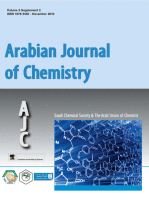
Chemical composition of pumpkin (Cucurbita maxima) seeds and its supplemental effect on Indian women with metabolic syndrome
2022 Aug Arabian Journal of Chemistry Jane Monica S, John S, Madhanagopal R, Sivaraj C, Khusro A, Arumugam P, et al.
Randomised Controlled Trial Metabolic Syndrome Blood Sugar Pumpkin SeedPumpkin seed supplementation can significantly reduce fasting blood glucose levels in Indian women suffering from metabolic syndrome.
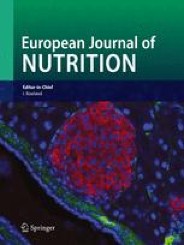
Glycemic response, satiety, gastric secretions and emptying after bread consumption with water, tea or lemon juice: a randomized crossover intervention using MRI
2022 Jan 11 European Journal of Nutrition Freitas D, Boué F, Benallaoua M, Airinei G, Benamouzig R, Lutton E, et al.
Randomised Controlled Trial Gastric Emptying Blood Sugar LemonLemon juice boosts gastric secretions and emptying rate, and reduces blood sugar response to starchy food, potentially due to acid-inhibition of digestion enzyme in saliva.

The effect of pomegranate extract on anthropometric indices, serum lipids, glycemic indicators, and blood pressure in patients with nonalcoholic fatty liver disease: A randomized double‐blind clinical trial
2021 Sep 08 Phytotherapy Research Goodarzi R, Jafarirad S, Mohammadtaghvaei N, Dastoorpoor M, Alavinejad P
Randomised Controlled Trial Obesity Pomegranate HDL-C Blood Sugar Triglyceride Insulin Resistance Cholesterol Diastolic Blood PressurePomegranate extract supplement shows potential in improving glycemic indicators, serum lipids, anthropometrics, and blood pressure in patients with nonalcoholic fatty liver disease.
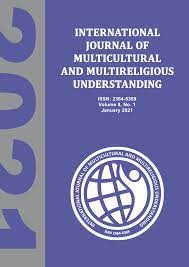
The Effect of Combined Exercise with Coffee Consumption on Fasting Blood Sugar Levels and Abdominal Obesity in Overweight Middle-aged Prediabetic Men
2021 Jul 28 International Journal of Multicultural and Multireligious Understanding Taheri AR, Talebi N
Randomised Controlled Trial Type 2 Diabetes Obesity Prediabetic Blood SugarCombined exercise and coffee consumption significantly reduce fasting blood sugar and abdominal obesity in middle-aged, pre-diabetic men.
Study Protocols
Published study protocols are detailed plans that outline the objectives, methodology, statistical analyses, and organisation of a research study that have been made publicly available for others to review and use as a reference.
Presentation Slides

Review Article
Pumpkin seeds are recognised for their medicinal, nutritional, and cosmetic benefits, including anti-diabetic, heart disease prevention, anti-cancer, and antioxidant qualities.
Wal A, Singh MR, Gupta A, Rathore S, Rout RR, Wal P

Randomised Controlled Trial
Consumption of unripe avocado extract in the diet may lower postprandial insulin levels in overweight adults with previously elevated insulin levels.
Zhao L, Ingram DK, Gumpricht E, De Paoli T, Teong XT, Liu B, Mori TA, Heilbronn LK, Roth GS

Systematic Review
Consumption of apple cider vinegar significantly improves certain risk factors for cardiometabolic syndrome, notably fasting blood glucose, glycosylated hemoglobin, and total cholesterol.
Dadkhah Tehrani S, Keshani M, Rouhani MH, Moallem SA, Bagherniya M, Sahebkar A

Cohort Study
Avocado consumption is linked to better glucose regulation, with metabolomic biomarkers of avocado intake showing even stronger associations with lower glycemia.
Wood AC, Goodarzi MO, Senn MK, Gadgil MD, Graca G, Allison MA, Tzoulaki I, Mi MY, Greenland P, Ebbels T, Elliott P, Tracy RP, Herrington DM, Rotter JI

Review Article
Plums, which are rich in bioactive compounds, antioxidants, and vitamins, can help maintain blood glucose level, bone health, heart health and even treat certain cancers.
Ayub H, Nadeem M, Mohsin M, Ambreen S, Khan F, Oranab S, Rahim M, Zubair khalid M, Zongo E, Zarlasht M, Ullah S

Systematic Review
Tart cherry juice shows promise in aiding blood sugar control and supporting heart health, highlighting its potential as a natural dietary addition.
Moosavian SP, Maharat M, Chambari M, Moradi F, Rahimlou M
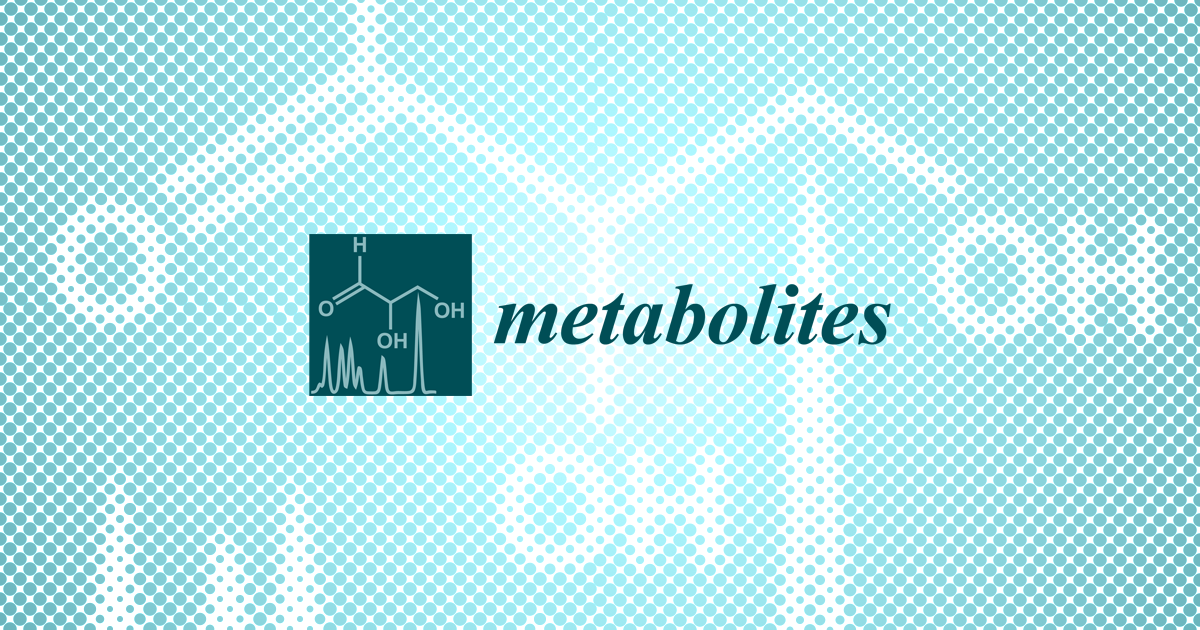
Cohort Study
Frequent consumption of sugar-sweetened coffee can adversely affect blood sugar control in patients with diabetes mellitus in Korea.
Yoo H, Park K

Randomised Controlled Trial
Pumpkin seed supplementation can significantly reduce fasting blood glucose levels in Indian women suffering from metabolic syndrome.
Jane Monica S, John S, Madhanagopal R, Sivaraj C, Khusro A, Arumugam P, Gajdács M, Esther Lydia D, Umar Khayam Sahibzada M, Alghamdi S, Almehmadi M, Emran TB

Animal Study
Certain natural mineral waters, when combined with a low-calorie diet, effectively reduce cholesterol and glucose levels in mice with metabolic syndrome.
Narciso L, Martinelli A, Torriani F, Frassanito P, Bernardini R, Chiarotti F, Marianelli C
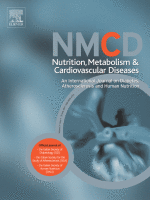
Meta-Analysis
Blueberry and cranberry consumption significantly lowered fasting blood glucose and glycated hemoglobin levels in individuals with diabetes.
Delpino FM, Figueiredo LM, Gonçalves da Silva T, Flores TR
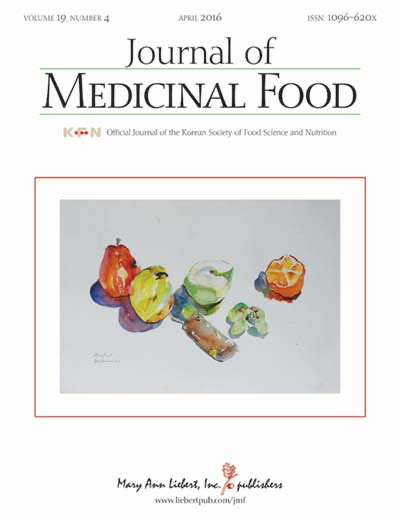
Systematic Review
Raspberry consumption can help to reduce blood glucose levels and stabilize the blood lipid profile due to its bioactive compounds.
Piña-Contreras N, Martínez-Moreno AG, Ramírez-Anaya JDP, Espinoza-Gallardo AC, Valdés EHM

Systematic Review
Consumption of sesame seeds and its products positively influences human glucose metabolism, potentially making it a beneficial addition to glucose-lowering diets.
Sohouli MH, Haghshenas N, Hernández‐Ruiz , Shidfar F

Randomised Controlled Trial
Lemon juice boosts gastric secretions and emptying rate, and reduces blood sugar response to starchy food, potentially due to acid-inhibition of digestion enzyme in saliva.
Freitas D, Boué F, Benallaoua M, Airinei G, Benamouzig R, Lutton E, Jourdain L, Dubuisson RM, Maître X, Darrasse L, Le Feunteun S

Meta-Analysis
Tea supplements, especially green tea, significantly decrease fasting blood glucose and fasting insulin levels and reduce body weight in women with polycystic ovary syndrome.
Shen W, Pan Y, Jin B, Zhang Z, You T, Qu Y, Han M, Yuan X, Zhang Y

Systematic Review
Cinnamon supplementation may significantly enhance metabolic status in women with polycicstic ovary syndrome, notably improving high-density lipoprotein and insulin sensitivity, and decreasing low-density lipoprotein, triglyceride, and blood glucose levels.
Maleki V, Faghfouri AH, Tabrizi FPF, Moludi J, Saleh-Ghadimi S, Jafari-Vayghan H, Qaisar SA

Randomised Controlled Trial
Pomegranate extract supplement shows potential in improving glycemic indicators, serum lipids, anthropometrics, and blood pressure in patients with nonalcoholic fatty liver disease.
Goodarzi R, Jafarirad S, Mohammadtaghvaei N, Dastoorpoor M, Alavinejad P

Randomised Controlled Trial
Combined exercise and coffee consumption significantly reduce fasting blood sugar and abdominal obesity in middle-aged, pre-diabetic men.
Taheri AR, Talebi N

Systematic Review
The consumption of cocoa or dark chocolate can reduce low-density lipoprotein cholesterol and fasting blood sugar levels in diabetic patients.
Darand M, Hajizadeh Oghaz M, Hadi A, Atefi M, Amani R

Randomised Controlled Trial
Enriching a regular diet with oat β-glucan can improve glycemic control, augment feelings of fullness, and positively modulate gut microbiota in individuals with type-2 diabetes.
Pino JL, Mujica V, Arredondo M
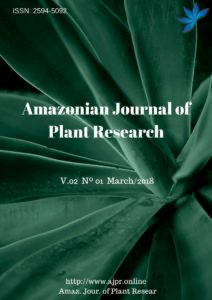
Systematic Review
The most important tremella mushroom benefits are anti-aging, anti-inflammatory, lower cholesterol, combat obesity, protect nerves and may fight cancer.
Mohamad Hesam Shahrajabian, Wenli Sun, Hong Shen and Qi Cheng

Clinical Study
Montmorency tart cherry juice can significantly improve blood pressure, fasting glucose, cholesterol rates and respiratory exchange ratio in those with metabolic syndrome.
Desai T, Roberts M, Bottoms L
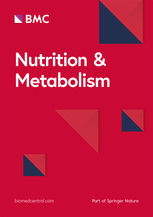
Systematic Review
Green tea supplementation significantly lowers fasting glucose levels but does not significantly affect fasting insulin and haemoglobin A1c values.
Xu R, Bai Y, Yang K, Chen G
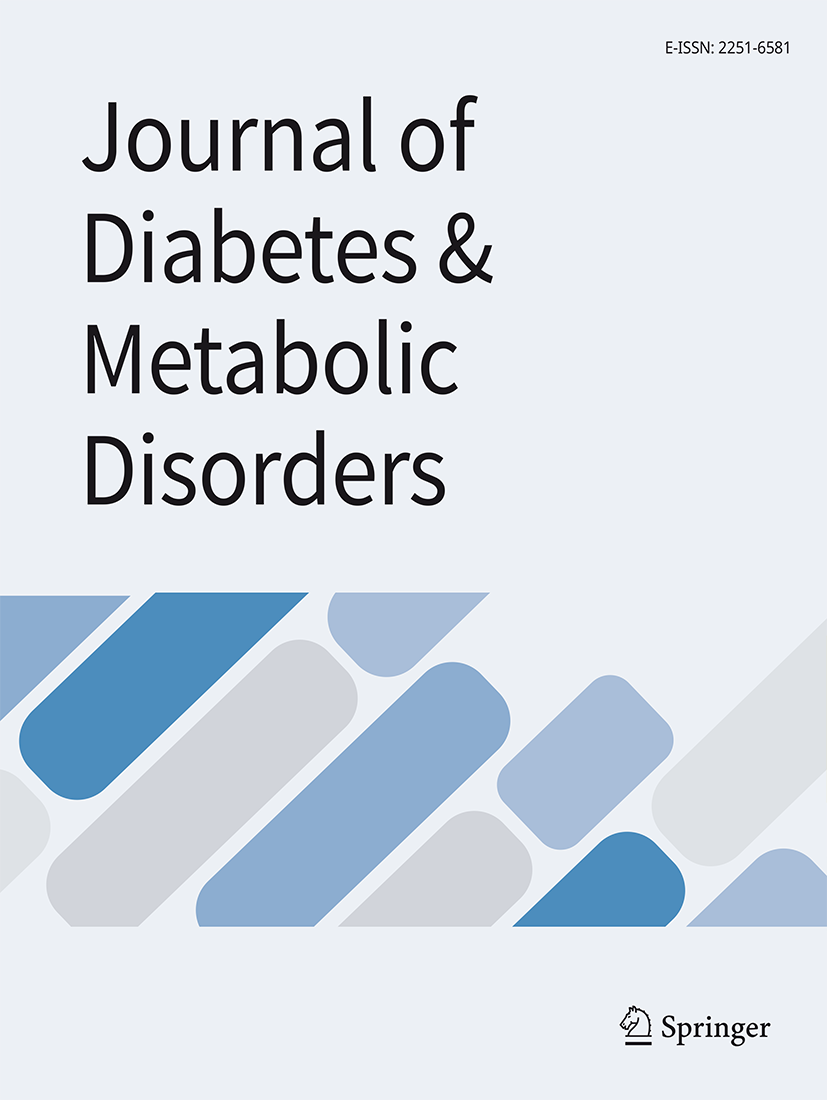
Systematic Review
Green coffee supplementation significantly decreases fasting blood sugar, insulin, and triglycerides while boosting high-density lipoprotein levels.
Morvaridi M, Rayyani E, Jaafari M, Khiabani A, Rahimlou M

Systematic Review
Cinnamon supplementation may help manage metabolic parameters in polycystic ovary syndrome patients by reducing fasting blood sugar, insulin, LDL-C, total cholesterol, and triacylglycerol levels.
Heydarpour F, Hemati N, Hadi A, Moradi S, Mohammadi E, Farzaei MH

Randomised Controlled Trial
Lemon juice, but not black tea, can lower and delay the blood glucose concentration peak after consuming bread.
Freitas D, Boué F, Benallaoua M, Airinei G, Benamouzig R, Le Feunteun S
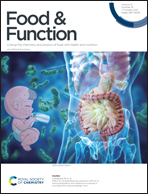
Review Article
Coffee and decaffeinated coffee appear to provide long-term protection against developing type 2 diabetes, potentially due to the influence of chlorogenic acids.
Williamson G
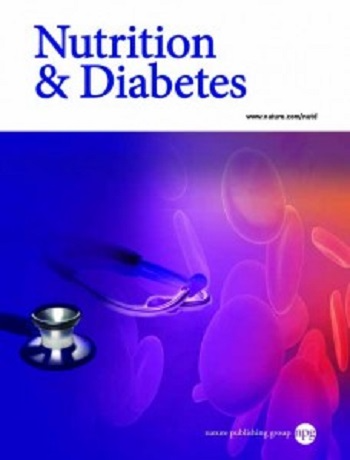
Systematic Review
Pu-erh tea has considerable inhibitory effects on alpha-amylase and alpha-glucosidase, indicating potential anti-hyperglycemic benefits.
Yang, CY., Yen, YY., Hung, KC. et al.
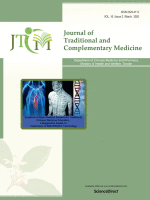
Systematic Review
Coffee consumption, in the long term, improves glucose metabolism but may cause unfavourable acute effects.
Reis CEG, Dórea JG, da Costa THM

Systematic Review
Drinking certain types of mineral water can positively influence metabolic syndrome factors like blood pressure, cholesterol, and blood sugar levels.
Costa-Vieira D, Monteiro R, Martins MJ

Animal Study
Ripened Pu-erh tea extract demonstrates a stronger anti-diabetic impact than raw Pu-erh tea extract, potentially due to the fermentation process and its probiotic benefits to certain gut bacteria.
Qianzhi Ding, Wei Zheng, Bowei Zhang, Xiaojuan Chen, Jie Zhang, Xu Pang, Yong Zhang, Dexian Jia, Surui Pei Yuesheng Dong Baiping Ma
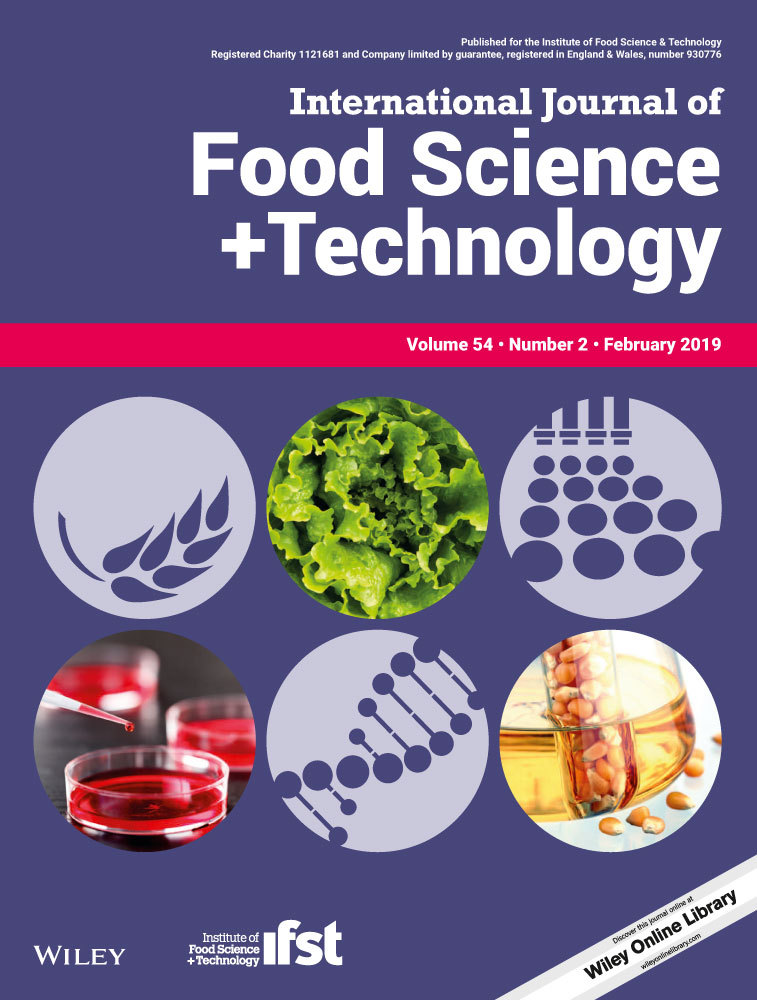
Animal Study
Pu-erh tea has a significant anti-hyperglycaemic effect, with its efficacy increasing over time and with higher dosages.
Lin, H.-C., Lee, C.-T., Yen, Y.-Y., Chu, C.-L., Hsieh, Y.-P., Yang, C.-S. and Lan, S.-J.
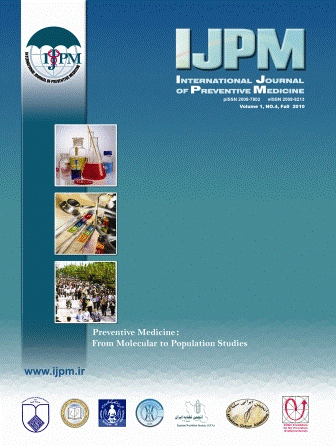
Systematic Review
Decaffeinated coffee enriched with chlorogenic acid does not significantly affect blood glucose levels in healthy humans, even though it does impact animals.
Faraji H

Clinical Study
Drinking 1litre of mineral water daily with meals can reduce risk factors for heart and metabolic diseases, particularly when replacing sugary drinks.
Toxqui L, Vaquero M

Experimental Study
Pumpkin seeds and their extracts, including Trigonelline, Nicotinic acid, and D-chiro-inositol, offer potential for controlling blood sugar levels in diabetes patients.
Adams GG, Imran S, Wang S, Mohammad A, Kok MS, Gray DA, Channell GA, Harding SE

Systematic Review
Cinnamomum Zeylanicum shows potential medicinal effects such as reducing blood glucose levels and possessing anti-microbial properties.
Ranasinghe P, Pigera S, Premakumara GAS, Galappaththy P, Constantine GR, Katulanda P
Executive Summary
Write an executive summary in the form of a blog article on the topic of "Research into Chinese medicine treatment for Blood Sugar" summarising the research below and using language that can be easily understood by patients and avoiding medical jargon using a professional and caring tone of voice.
Write an executive summary in the form of a blog article on the topic of "Researched Chinese medicine treatments for Blood Sugar" summarising the research below in an objective and easy to understand way, and using language that can be easily understood by patients. Group the article into Chinese medicine treatments first, followed by nutrition and other treatments. Avoid using medical jargon and use a professional and caring tone of voice.
Write me a concise but easy to understand executive summary on the topic of "Chinese medicine treatments for Blood Sugar" based on the following research that I will give you. Your summary should be 2 paragraphs long in Australian English spelling and include references to the studies.
A Review Article published in 2024 in the journal The Natural Products Journal found that Pumpkin seeds are recognised for their medicinal, nutritional, and cosmetic benefits, including anti-diabetic, heart disease prevention, anti-cancer, and antioxidant qualities. The review article undertakes a comprehensive exploration of the nutraceutical importance of pumpkin seeds. The methodology includes an examination of the various known substances in the seeds, such as phytoestrogens, unsaturated fatty acids, and vitamin E. The study then delves into the different benefits and therapeutic uses of these components stretching from medicinal to nutritional to cosmetic applications. The results of this research are diverse and impressive, with implications for several major health sectors. Their potential anti-diabetic and hypoglycemic properties could suggest a significant role in the management and prevention of diabetes. Meanwhile, the seeds' potential in cardiovascular disease prevention could help to address one of the most pressing global health issues. Moreover, potential anti-cancer properties imply that these seeds could even have a part to play in cancer prevention. The review also described potential additional qualities, such as antidepressant, anti-helminthic (parasite-removing), and antioxidant effects.
A Randomised Controlled Trial published in 2023 in the journal Nutrients found that Consumption of unripe avocado extract in the diet may lower postprandial insulin levels in overweight adults with previously elevated insulin levels. In this study, a double-blinded, randomised controlled trial was performed on 60 non-diabetic adults (with a majority of 47 being women, average age 48 years, BMI 34.0 kg/m). The participants were stratified by sex and randomised into two groups. One group daily consumed an extract from unripe avocado (10 g finely ground, freeze-dried unripe avocado), while the other took a placebo (10 g finely ground cornmeal supplemented with 5% spinach powder) over a period of 12 weeks. The primary outcome measured was the change in glucose area under the curve (AUC) in response to a 75 g oral glucose tolerance test. The results showed no significant differences between both groups in terms of glucose AUC, insulin AUC, or cardiovascular outcomes. However, in a subgroup analysis focusing on participants with above median baseline postprandial insulin levels, there was a notable reduction in insulin AUC in those who consumed the avocado extract compared to the placebo. This suggests that the daily consumption of an unripe avocado extract, enriched in MH, might not significantly impact glucose tolerance or insulin sensitivity in obese non-diabetic adults. Nonetheless, there seems to be a potential benefit of this intervention on postprandial insulin levels in individuals with initially elevated insulin responses.
A Systematic Review published in 2023 in the journal Current Medicinal Chemistry found that Consumption of apple cider vinegar significantly improves certain risk factors for cardiometabolic syndrome, notably fasting blood glucose, glycosylated hemoglobin, and total cholesterol. This study applied a systematic review and meta-analysis of clinical trials found in PubMed, Scopus, and ISI Web of Science databases. In this process, trials evaluating the effects of apple cider vinegar consumption on cardiometabolic syndrome risk factors were sought. In total, 25 clinical trials were included in the study, these trials encompassed 1320 adult participants. The consumed apple cider vinegar led to a general improvement in fasting blood glucose, glycosylated hemoglobin, and total cholesterol. However, for body mass index, insulin resistance, serum insulin, triglycerides, low-density lipoprotein cholesterol, and high-density lipoprotein cholesterol, no significant results were observed. Conducting a subgroup analysis, the study identified a significant decrease in fasting blood glucose, glycosylated hemoglobin, total cholesterol, and triglycerides in diabetic patients. Further, it was observed that the apple cider vinegar significantly reduced fasting blood glucose levels regardless of the duration of administration and also decreased triglycerides concentration when consumed for 12 weeks or more.
A Cohort Study published in 2023 in the journal The Journal of Nutrition found that Avocado consumption is linked to better glucose regulation, with metabolomic biomarkers of avocado intake showing even stronger associations with lower glycemia. The study used baseline data from 6224 multi-ethnic older adults, including self-reported avocado intake, fasting glucose and insulin. Untargeted plasma proton nuclear magnetic resonance contributed to metabolomic features, with data available for a subset of 3438 participants. The researchers then assessed the incidence of type 2 diabetes over approximately an 18-year follow-up period. They conducted a metabolome-wide association study comparing avocado consumers to nonconsumers and examined the features' associations with glycemia, both cross-sectionally with fasting insulin and glucose, and longitudinally with the incidence of type 2 diabetes. The research identified three highly-correlated spectral features associated with avocado intake at metabolome-wide significance levels and grouped into a single biomarker. These features didn't demonstrate any strong associations with overall dietary quality or any of the 47 other food groups, reinforcing their validity as an avocado intake biomarker. While avocado intake had a modest effect on lowering fasting insulin, this effect was not significant when adjusting for participants' body mass index. However, the avocado intake biomarker was noticeably related to lower fasting glucose, lower fasting insulin, and a lower incidence of type 2 diabetes, even after adjusting for BMI. This illustrates the considerable influence of metabolomic insights in determining diet-health relationships and the importance of considering individual metabolic differences for health outcomes.
A Review Article published in 2023 in the journal International Journal of Food Properties found that Plums, which are rich in bioactive compounds, antioxidants, and vitamins, can help maintain blood glucose level, bone health, heart health and even treat certain cancers. The research explored the health benefits and medicinal effects of plums, a common fruit belonging to the Prunus genus. The study focused not only on their consumption as a food source but also their uses in beverages. Special attention was given to the polyphenolic compounds, bioactive compounds, and antioxidants inherent in plums, such as phenolic acids, anthocyanins, carotenoids, and various organic acids, alongside an array of necessary minerals and vitamins. Apart from detailing traditional nutritional components, the study analyzed the unique constituents of plums like caffeic acid, chlorogenic acid and other phenolic compounds which contribute to its antioxidant property. The broader health benefits provided by these compounds spanning bone health, cardiovascular health, blood glucose stabilization, and potential impacts on gastrointestinal diseases were studied, with a particular emphasis on their possible role in the prevention and treatment of heart disease and specific kinds of cancer: lung and oral. The role of plums' low fat and high dietary fibre content in heart disease prevention was of special focus.
A Systematic Review published in 2022 in the journal Complementary Therapies in Medicine found that Tart cherry juice shows promise in aiding blood sugar control and supporting heart health, highlighting its potential as a natural dietary addition. Tart cherry juice was found to lower fasting blood sugar but didn't have a significant impact on blood pressure, insulin, cholesterol, body fat, or weight. It is rich in antioxidants, which may be why it's beneficial for the heart. Changes in gut bacteria might also play a role. More research with larger and varied groups of people is needed to confirm these findings and understand them better. In the meantime, healthcare professionals may consider suggesting tart cherry juice for heart health.
A Cohort Study published in 2022 in the journal Metabolites found that Frequent consumption of sugar-sweetened coffee can adversely affect blood sugar control in patients with diabetes mellitus in Korea. This study focused on adult coffee consumption patterns in Korea using data collected from the Korea National Health and Nutrition Examination Survey between 2008 to 2020. The consuming habits of 5671 diabetic patients were analyzed considering how often they consumed a mixture of coffee with sugar and creamer, referred commonly as 3-in-1 coffee. The methods used involved assessing these patterns through a 24-hour recall. Blood sugar control was evaluated using fasting blood glucose levels and hemoglobin A1c levels, in line with the targets set by the Korean Diabetes Association. The results revealed that nearly half of the diabetic patients in this study consumed sugar-sweetened coffee. These patients demonstrated significantly higher fasting blood glucose and hemoglobin A1c levels compared to those who did not partake in such consumption. The findings also indicated an increased likelihood of patients failing to achieve their blood sugar control targets, corresponding to the frequency of their consumption of sugar-sweetened coffee.
A Randomised Controlled Trial published in 2022 in the journal Arabian Journal of Chemistry found that Pumpkin seed supplementation can significantly reduce fasting blood glucose levels in Indian women suffering from metabolic syndrome. The researchers initially assessed the antioxidant activities of pumpkin seed extract using standard in vitro methods. There was also an investigation into the antidiabetic effects of the seed extract by conducting alpha-amylase, alpha-glucosidase, and dipeptidyl peptidase IV inhibition effects tests as well as a glucose uptake assay using 3T3-L1 cell lines. Identification of fatty acids and various plant compounds in the seed extract was accomplished with gas chromatography-mass spectrometry. Indian women aged between 30-50 years who had metabolic syndrome were then recruited, divided into two groups: intervention and control. The women in the intervention group received 5g of pumpkin seeds for 60 days while both groups followed certain dietary guidelines throughout the study period. The results demonstrate that the pumpkin seeds had sharp reducing power and acted as scavengers of DPPH and ABTS free radicals. They also inhibited certain enzymes and notably, improved glucose uptake by a significant percentage. Gas chromatography-mass spectrometry further identified the presence of certain compounds within the seed extract. Comparing the changes between the intervention and control groups showed a significant reduction of fasting plasma glucose in the intervention group after 60-day supplementation with pumpkin seeds, thus suggesting its beneficial effect on metabolic syndrome.
A Animal Study published in 2022 in the journal Frontiers in Nutrition found that Certain natural mineral waters, when combined with a low-calorie diet, effectively reduce cholesterol and glucose levels in mice with metabolic syndrome. The study involved 125 male and female C57BL/6 mice. Ten mice were kept as a healthy control group, fed a standard diet with tap water. The remaining 115 mice were fed a high-calorie diet (60% fat, 10% fructose in water) for four months to induce metabolic syndrome, followed by a two-month treatment phase with a low-calorie diet and various types of natural mineral water (NMW). The mice were divided into six treatment groups, each receiving a different NMW, and a control group receiving tap water. The study monitored body weight and blood biochemistry over six months. After four months on a high-calorie diet, both male and female mice developed obesity, high cholesterol, and high blood sugar, with males showing greater increases. During the treatment phase, NMWs rich in sulphate, magnesium, bicarbonate, and minimally mineralized water, along with a low-calorie diet, significantly lowered total cholesterol, HDL cholesterol, and glucose levels. Sex differences were observed during both the induction and treatment phases. These findings indicate that specific NMWs, in conjunction with a low-calorie diet, may help manage blood lipid and glucose levels in metabolic syndrome, although further research is needed to confirm these results in humans.
A Meta-Analysis published in 2022 in the journal Nutrition, Metabolism and Cardiovascular Diseases found that Blueberry and cranberry consumption significantly lowered fasting blood glucose and glycated hemoglobin levels in individuals with diabetes. The research methodology involved a systematic literature review and meta-analysis using publications sourced from seven different databases (PubMed, LILACS, Scielo, Scopus, Web of Science, Cochrane, and Embase) up until May 2021. The researchers included randomized clinical trials where the effects of blueberry or cranberry on parameters linked to type 2 diabetes such as fasting blood glucose, insulin resistance, and glycated hemoglobin were compared. The quality of these studies was evaluated using the Cochrane scale while the Egger test was utilized to assess publication bias and the meta-regression evaluated the estimated effect sizes with potential moderator variables. Following an initial identification of 2034 studies, 39 full-text studies were read, out of which 22 met the criteria to be included in the final meta-analysis. The findings showed that individuals with diabetes experienced significant reductions in fasting blood glucose and glycated hemoglobin readings following the consumption of blueberries or cranberries. However, no significant effects were seen on insulin resistance. While the results were not universally significant when it came to the general population, an exception was found in the sensitivity analysis for fasting blood glucose.
A Systematic Review published in 2022 in the journal Journal of Medicinal Food found that Raspberry consumption can help to reduce blood glucose levels and stabilize the blood lipid profile due to its bioactive compounds. The researchers conducted a systematic review of original articles and enzyme inhibition studies involving animal models and human clinical studies, extracting data from the PubMed, Web of Science, and Science Direct databases. The mechanisms of action investigated focused on how consumption of raspberry in different forms (like frozen, lyophilized, infusion of leaves, seed oil) and compounds extracted from it could inhibit enzymes and increase insulin production and sensitivity, thereby affecting blood glucose levels. The findings revealed that raspberry consumption, regardless of its form, consistently aided in reducing blood glucose levels. The mechanisms involved included inhibition of specific enzymes and enhancement of insulin production and sensitivity. On the other hand, the effects on the lipid profile were varied. While a decrease in cholesterol and low-density lipoprotein levels was recorded, the impact on triglyceride levels was less consistent and manifested mainly as stabilization rather than reduction. However, an increase in levels of beneficial high-density lipoproteins was reported, suggesting an overall beneficial effect on lipid profile.
A Systematic Review published in 2022 in the journal Phytotherapy Research found that Consumption of sesame seeds and its products positively influences human glucose metabolism, potentially making it a beneficial addition to glucose-lowering diets. The methodology involved conducting a systematic review and meta-analysis on the effect of sesame seeds consumption on blood glucose and insulin resistance in adults. The researchers gathered data from recognized academic resources like PubMed/MEDLINE, SCOPUS, Web of Science, Google Scholar, and EMBASE, which included controlled clinical trials up until February 2021. The sesame products in these trials ranged from sesame oil, sesamin, and tahini, with the intervention period lasting from 45 days to 9 weeks. The results illustrate that the intake of sesame and its products significantly improved fasting blood glucose and Hemoglobin A1c levels. Nonetheless, the results regarding fasting serum insulin and the homeostatic model assessment for insulin resistance were not found to have any significant relation. Hence, the consumption of sesame might be a beneficial supplement for managing glucose levels in humans.
A Randomised Controlled Trial published in 2022 in the journal European Journal of Nutrition found that Lemon juice boosts gastric secretions and emptying rate, and reduces blood sugar response to starchy food, potentially due to acid-inhibition of digestion enzyme in saliva. Methodology: In this randomized, crossover study, 10 subjects consumed either water, lemon juice diluted in water, or black tea with bread at breakfast. Using magnetic resonance imaging, the finger-prick method, and visual analogue scales, researchers measured gastric volumes, the concentrations of glucose in the blood, and the perception of appetite over a period of three hours. Discussion of Results: Lemon juice consumption resulted in a significant increase in gastric content volume, as well as a faster rate of gastric emptying, compared to water. It also elicited a lower glycemic response compared to water. However, no significant effect was observed with tea consumption. Correspondingly, changes in appetite perception and gastric volumes showed a strong correlation, though there were no significant differences among the different drinks. The findings suggest that the observed reduction in glycemic response could primarily be attributed to the interruption of starch digestion due to the acid-inhibition of the salivary enzyme responsible for starch hydrolysis.
A Meta-Analysis published in 2021 in the journal Frontiers in Endocrinology found that Tea supplements, especially green tea, significantly decrease fasting blood glucose and fasting insulin levels and reduce body weight in women with polycystic ovary syndrome. The researchers conducted a systematic review and meta-analysis by searching published literature in different databases from 1985 to September 2021. The data from randomized controlled trials were extracted to assess the effectiveness of tea versus placebo in women with polycystic ovary syndrome. Weighted mean differences were pooled using a random-effects model. A total of six trials with 235 participants were included in this review. The study resulted in finding that consumption of tea supplements improved body weight, fasting blood glucose, and fasting insulin more significantly when compared with a placebo. Notably, green tea was effective on body weight, fasting insulin, fasting blood glucose, and certain reproductive hormone indexes. The therapy was also found to be safely tolerated by the patients. It's important to note that tea had significant effects on fasting blood glucose and hormone levels in trials with intervention duration of 3 months or more. Differences were noticed among Asian and Caucasian PCOS patients regarding the effect of tea on weight and fasting insulin.
A Systematic Review published in 2021 in the journal Journal of Ovarian Research found that Cinnamon supplementation may significantly enhance metabolic status in women with polycicstic ovary syndrome, notably improving high-density lipoprotein and insulin sensitivity, and decreasing low-density lipoprotein, triglyceride, and blood glucose levels. The systematic review employed a PICO framework where the population was subjects with polycystic ovary syndrome (PCOS), the intervention was oral cinnamon supplement, the comparison group was either a control or a placebo group, and the outcome measured were changes in inflammatory, oxidative stress, lipid profile, glycemic, hormonal and anthropometric parameters, and ovarian function. To gather relevant research studies, databases including PubMed, Scopus, EMBASE, ProQuest, and Google Scholar were searched right from their inception until January 2020 using specific, relevant keywords. Out of the initial 266 studies found, only nine met the criteria for evaluation. The types of studies considered for this review included all clinical trials, animal studies, and english-language journal studies. The results showed a promising improvement in metabolic status in PCOS patients with cinnamon supplementation. This was shown through increased high-density lipoprotein and insulin sensitivity, and a decrease in low-density lipoprotein, triglyceride, and blood glucose levels in these patients. However, the impact of cinnamon on body weight and body mass index was inconsistent across the studies. Similarly, while the studies showed improved results regarding the effects of cinnamon on oxidative stress and ovarian function, the specific mechanisms behind these effects still need to be fully elucidated. Future studies should focus on observing clinical changes after cinnamon supplementation in PCOS through clinical trials with higher doses of cinnamon and a longer duration of intervention.
A Randomised Controlled Trial published in 2021 in the journal Phytotherapy Research found that Pomegranate extract supplement shows potential in improving glycemic indicators, serum lipids, anthropometrics, and blood pressure in patients with nonalcoholic fatty liver disease. The study involved 44 patients who had been diagnosed with nonalcoholic fatty liver disease. These individuals were randomly assigned to two groups, with one group receiving two pomegranate extract tablets daily over a period of 12 weeks, and the other a placebo. The researchers measured anthropometric values, serum lipid levels, blood pressure, and glycemic indicators before and after the intervention. In their analysis of the outcomes, the researchers found that the group which received the pomegranate extract showed reductions in total cholesterol, triglyceride levels, the ratio of low-density lipoprotein cholesterol to high-density lipoprotein cholesterol, fasting blood sugar, resistance to insulin, diastolic blood pressure, weight, body mass index, and waist circumference when compared to the placebo group. Additionally, an increase in serum high-density lipoprotein cholesterol was observed within the pomegranate group, indicating the potential utility of this supplement in a treatment regimen for this condition.
A Randomised Controlled Trial published in 2021 in the journal International Journal of Multicultural and Multireligious Understanding found that Combined exercise and coffee consumption significantly reduce fasting blood sugar and abdominal obesity in middle-aged, pre-diabetic men. In the study, 44 overweight, middle-aged pre-diabetic men were purposefully selected and divided into four groups: The Exercise Combination group, the Coffee Consumption group, the Combined Exercise + Coffee Consumption group, and the Control group. Prior to and following the experiment, measurements such as weight, body mass index, and percentage of fasting fat were recorded. The exercise groups were subjected to a training protocol for 8 weeks, which involved three, 90 minute sessions every week. Concurrently, the Coffee and the Exercise + Coffee group consumed 10 grams of coffee every alternate day. The data were processed using a covariance test. The results clearly indicated a substantial decrease in the body mass index, fat percentage, and serum concentration of fasting blood glucose in the exercise groups in comparison to the Control group. The study demonstrated that, for pre-diabetic men, a combination of exercise with coffee may effectively manage fasting blood sugar and abdominal obesity.
A Systematic Review published in 2021 in the journal Phytotherapy Research found that The consumption of cocoa or dark chocolate can reduce low-density lipoprotein cholesterol and fasting blood sugar levels in diabetic patients. A systematic search of databases identified eight randomized controlled trials (RCTs) with 433 participants for meta-analysis. The results demonstrated a substantial reduction in LDL-c levels (WMD: −15.49 mg/dl) and FBS concentrations (WMD: −6.88 mg/dl) following cocoa/dark chocolate consumption. The study emphasizes the potential positive effects of cocoa/dark chocolate on the metabolic profile of diabetic individuals. The meta-analysis included RCTs focusing on cocoa/dark chocolate interventions in diabetic patients, with a significant pooled analysis showing reduced LDL-c and FBS levels. The findings suggest that incorporating cocoa/dark chocolate in the diet of diabetic individuals could be beneficial for managing lipid profile and glycemia. Further research is necessary to solidify these insights and understand the complete impact on metabolic health.
A Randomised Controlled Trial published in 2021 in the journal Journal of Functional Foods found that Enriching a regular diet with oat β-glucan can improve glycemic control, augment feelings of fullness, and positively modulate gut microbiota in individuals with type-2 diabetes. The research involved 37 subjects with type-2 diabetes, who were required to consume either oat β-glucan or microcrystalline cellulose as a control dietary supplement each day for a period of 12 weeks. The parameters assessed throughout the study included fasting glucose, insulin, a variety of hormones and peptides regulating appetite (like ghrelin, leptin, GLP-1, PYY), caloric intake, and the profile of their intestinal microbiota. The results indicated a decrease in HbA1c, insulin, C-peptide levels, as well as certain bacterial populations (Lactobacillus spp, and Butyrate-producing bacteria) in subjects who consumed β-glucan. Significant differences were observed in levels of certain hormones, namely leptin, GLP-1, and PYY, between the two groups. The intake of oat β-glucan emerged as a potential strategy to manage type-2 diabetes, by improving glycemic control, enhancing feelings of satiety, and fostering a healthier gut microbiota profile.
A Systematic Review published in 2020 in the journal Amazonian Journal of Plant Research found that The most important tremella mushroom benefits are anti-aging, anti-inflammatory, lower cholesterol, combat obesity, protect nerves and may fight cancer. The most powerful nutritional constituents of Tremella are amino acids, vitamins, minerals, polysaccharides, Glucurmomannan 1,3-alpha-glucan, Epitope 9beta-D- glucuronosyl), Glucuronic acid, Glucurmic acid, Glucuronoxylomannan, N-acetylglucosamine, Flavonoids, Polyphenols, Alkaloids and Organic acids. Functional foods are making inroads into Chinese diets with their promises to improve health and nutrition. Chinese consumers should choose nutritional and healthy food to maintain general health and reduce the risk of health problems. Nutrition therapy on the basis of traditional Chinese medicine such tremella is quite effective at treating common diseases.
A Clinical Study published in 2020 in the journal European Journal of Nutrition found that Montmorency tart cherry juice can significantly improve blood pressure, fasting glucose, cholesterol rates and respiratory exchange ratio in those with metabolic syndrome. In a blind, placebo-controlled, crossover trial, the researchers recruited twelve participants suffering from metabolic syndrome. They were given either Montmorency tart cherry juice or a placebo for seven days. During this period, a variety of blood-based and functional cardio-metabolic biomarkers were analysed both before and after the supplementation period. In addition to this seven-day supplementation, the acute response of the participants to a single bolus of the treatment was measured on the seventh day, at intervals up until five hours post ingestion of the bolus. The researchers found that certain key health markers showed a significant improvement in the group that had taken the Montmorency tart cherry juice. These markers included 24-hour blood pressure levels, fasting glucose levels, total cholesterol, the ratio of total cholesterol to high-density lipoproteins (the "good" cholesterol), as well as resting respiratory exchange ratio. These findings suggest that the Montmorency tart cherry juice has the potential to drastically improve cardio-metabolic health in those affected by metabolic syndrome.
A Systematic Review published in 2020 in the journal Nutrition & Metabolism found that Green tea supplementation significantly lowers fasting glucose levels but does not significantly affect fasting insulin and haemoglobin A1c values. The researchers performed a systematic review and meta-analysis of randomized control trials which examined the effect of green tea on glycemic control. Using online databases like PubMed, Embase, and Cochrane Library, they identified relevant trials up until February 2020. They then employed a random-effects model in order to estimate the weighted mean difference. In the discussion of the results, it was found that twenty-seven trials, including 2194 subjects, were part of the meta-analysis. The collected data indicated that green tea lowered fasting blood glucose levels significantly. However, the same was not observed for fasting insulin and HbA1c values, which remained relatively unchanged despite green tea consumption. Moreover, substantial differences were noted in the range of responses, indicating significant heterogeneity, especially for fasting insulin levels. Despite these discrepancies, the short-term trials collectively demonstrated the beneficial effect of green tea supplementation in reducing fasting glucose levels.
A Systematic Review published in 2020 in the journal Journal of Diabetes & Metabolic Disorders found that Green coffee supplementation significantly decreases fasting blood sugar, insulin, and triglycerides while boosting high-density lipoprotein levels. In methodology, a comprehensive literature review was carried out across PubMed, Embase, Scopus, and the Web of Science databases until October 2019. The objective was to scrutinize all randomized controlled trials of the impact of green coffee supplementation on various cardio metabolic risk factors in adults. These risk factors included fasting blood sugar, insulin, triglycerides, high and low-density lipoproteins and C-reactive protein. Data was then extracted from the relevant studies for analysis. From the selected 27 studies for final analysis, the pooled results depicted that green coffee supplementation had a significant effect in reducing fasting blood sugar, insulin, and triglyceride levels. In addition, it was found to increase the levels of high-density lipoprotein. Conversely, it was determined that the supplementation did not lead to any notable changes in the Homeostatic Model Assessment for Insulin Resistance, low-density lipoprotein and C-reactive protein levels.
A Systematic Review published in 2020 in the journal Journal of Ethnopharmacology found that Cinnamon supplementation may help manage metabolic parameters in polycystic ovary syndrome patients by reducing fasting blood sugar, insulin, LDL-C, total cholesterol, and triacylglycerol levels. In order to evaluate the effect of cinnamon supplementation on metabolic parameters of PCOS patients, relevant clinical trials were systematically reviewed and analysed. Data was collated from multiple credible databases including PubMed, Embase, the Cochrane library, Scopus and Web of Science, up until August 2019. Studies were selected that provided information specifically about the impact of cinnamon supplementation on metabolic parameters amongst PCOS patients. Standard methods were used to assess heterogeneity, publication bias and sensitivity analysis with five clinical trials pooled together using a weighted mean-difference calculation. The findings of the meta-analysis showed that cinnamon supplementation does not significantly affect body weight and body mass index in PCOS patients. However, it was found that cinnamon supplementation led to a significant decrease in fasting blood sugar, fasting insulin, and HOMA-IR, along with reducing the serum levels of LDL-C, total cholesterol, and triacylglycerol. Additionally, there was an observed improvement in serum concentration of HDL-C with cinnamon supplementation. Ultimately illustrating that cinnamon supplementation may play a significant role in managing metabolic parameters in polycystic ovary syndrome patients.
A Randomised Controlled Trial published in 2020 in the journal European Journal of Nutrition found that Lemon juice, but not black tea, can lower and delay the blood glucose concentration peak after consuming bread. The methodology used in this research consisted of a randomized crossover study involving three test groups consuming equal portions of bread partnered with three different beverages: water, black tea, and lemon juice. Each participant's capillary blood glucose concentrations were monitored over a 180-minute period using the finger-prick method. Additionally, the participants' free-choice energy intake was assessed three hours after the bread and beverage consumption to gauge the effects of the different beverages. The results of the research showed a distinct difference between the effects of lemon juice and black tea on the glycemic response to bread. It was found that black tea didn't affect the blood glucose responses. However, lemon juice significantly reduced and delayed the peak of blood glucose concentration. It's noteworthy that the pH-lowering effect of the lemon juice performed similarly to other acidic foods, indicating that incorporating acidic drinks or foods in starch-rich meals is an effective strategy to minimize their glycemic impact. Interestingly, none of the beverages tested had an impact on the participants' ad libitum energy intake.
A Review Article published in 2020 in the journal Food & Function found that Coffee and decaffeinated coffee appear to provide long-term protection against developing type 2 diabetes, potentially due to the influence of chlorogenic acids. This research observes a considerable protective effect of coffee and decaffeinated coffee over the long term against the onset of type 2 diabetes, discovered through epidemiological studies. A complex mechanism associated with chlorogenic acids is proposed, with the theory examining their potential impact on blood sugar levels. Interestingly, the effects of decaffeinated coffee on post-meal blood sugar and insulin, if consumed with carbohydrates, is minimal, although these substances might be impacting incretin hormones. The potential effects of chlorogenic acids are examined from the perspective of not directly affecting carbohydrates digestion, but perhaps influencing glucose absorption and subsequent utilisation. Different factors, such as metabolites derived from endogenous pathways or the influence of the gut microbiota, are considered. The study proposes a need for chronic intervention studies on decaffeinated coffee, in sync with more focused in vitro studies using realistic concentrations of relevant chlorogenic acid metabolites, to further understand this protective property of coffee.
A Systematic Review published in 2019 in the journal Nutrition & Diabetes found that Pu-erh tea has considerable inhibitory effects on alpha-amylase and alpha-glucosidase, indicating potential anti-hyperglycemic benefits. The study employed a systematic review method to investigate the inhibitory effects of Pu-erh tea on alpha-amylase and alpha-glucosidase. English and Chinese databases, specifically PubMed, EBSCO, SCOPUS, Cochrane Library, Web of Science, Airti Library, CNKI Library, and Google Scholar, were thoroughly searched up to March 22, 2018 for eligible studies. Search terms included Pu-erh, Pu'er, alpha-amylase, and alpha-glucosidase, aiming to collect an integrative body of literature demonstrating the link between Pu-erh tea and its presumed anti-hyperglycemic effects. Concerning the discussion of the results, the systematic review incorporated six studies that had examined inhibitory effects on alpha-glucosidase and seven that had investigated alpha-amylase. The analysis revealed that Pu-erh tea does indeed demonstrate inhibitory effects on both alpha-amylase and alpha-glucosidase. However, high heterogeneity was identified across the various studies, which could be attributed to the complex changes in chemical composition resulting from varying extents of fermentation. The significant findings suggest the tea's potential as a natural remedy for hyperglycemia.
A Systematic Review published in 2019 in the journal Journal of Traditional and Complementary Medicine found that Coffee consumption, in the long term, improves glucose metabolism but may cause unfavourable acute effects. Researchers undertook a systematic review to evaluate the impact of coffee consumption on glucose metabolism. They scanned two electronic databases, PubMed and Web of Science, for relevant studies published till September 2017. After thorough scrutiny, eight clinical trials involving 247 participants were earmarked for analysis. These trials were divided into short-term (1-3 hours) and long-term (2-16 weeks) studies for distinct evaluation. The participants' characteristics, major discoveries, and study quality were all meticulously noted and analysed. The initial short-term studies revealed that consumption of caffeinated coffee might lead to an escalation in the area under the curve for the glucose response, an immediate effect. Conversely, long-term studies suggested that caffeinated coffee might contribute to the enhancement of glycaemic metabolism over time by reducing the glucose curve and bolstering the insulin response. Despite the immediate short-term effects, an overall positive long-term impact on glucose metabolism was reported.
A Systematic Review published in 2019 in the journal Nutrients found that Drinking certain types of mineral water can positively influence metabolic syndrome factors like blood pressure, cholesterol, and blood sugar levels. This review examined 20 studies sourced from PubMed, Scopus, and Google Scholar on how mineral water consumption affects metabolic syndrome (MetSyn) features. The studies varied in their approach, including the type and composition of mineral water, the amount consumed, dietary factors, and study duration. Both human and animal studies were included, with diverse population sizes and characteristics. The research focused on several MetSyn aspects: blood pressure (BP), total triglycerides, HDL-cholesterol, glucose levels, and waist circumference (WC). The review found that certain types of mineral water had beneficial effects on blood pressure, total triglycerides, HDL-cholesterol, and glucose levels, although no significant influence on waist circumference was reported. The presence of specific minerals, elements, and active ions or molecules in the water, along with their pH levels, appeared crucial in counteracting metabolic dysfunctions and the increased acid load in diets associated with MetSyn. The studies discussed various molecular and physiological mechanisms behind these effects. However, further research is needed to fully understand the mechanisms by which mineral water consumption might protect against MetSyn features.
A Animal Study published in 2019 in the journal RSC Advances found that Ripened Pu-erh tea extract demonstrates a stronger anti-diabetic impact than raw Pu-erh tea extract, potentially due to the fermentation process and its probiotic benefits to certain gut bacteria. The methods of the study involved the processing and analysis of Pu-erh tea leaves, specifically the raw variety and the ripened type which goes through pile-fermentation. To identify differences in the anti-diabetic effects of both types, the researchers subjected their extracts to ultra-high-performance liquid chromatography paired with quadrupole-time-of-flight mass spectrometry (UHPLC-Q-TOF/MS) and UHPLC coupled with photodiode array (PDA) analyses. These techniques helped in identifying new compounds formed and those that increased due to the fermentation. The research also performed a study observing the effects of Ripened Pu-erh Tea on beneficial gut bacteria, namely Lactobacillus, Bifidobacterium, Akkermansia, and Roseburia. In their discussion, the researchers noted that the ripened Pu-erh tea extract exhibited more potent anti-diabetic effects on two key indicators of diabetes: two-hour postprandial blood glucose and fasting blood glucose. This superiority over the raw Pu-erh tea extract was attributed to 17 newly formed components and those that increase after fermentation such as quinic acid, gallic acid, caffeine, and puerin I. Furthermore, ripened Pu-erh tea showed to have a probiotic role on certain beneficial gut bacteria, implying an extra potential avenue for its anti-diabetic effects.
A Animal Study published in 2019 in the journal International Journal of Food Science & Technology found that Pu-erh tea has a significant anti-hyperglycaemic effect, with its efficacy increasing over time and with higher dosages. The research team systematically searched five English databases and three Chinese ones up to July 31, 2018 for studies related to the term 'Pu-erh' and the concepts of 'blood sugar', 'blood glucose', and 'hyperglycaemia'. The team used the software RevMan 5 and Stata to carry out a meta-analysis, which ultimately included two studies on mice, with sixteen records total. The results from the meta-analysis reveal that Pu-erh tea has a strong anti-hyperglycaemic effect on mice. More noteworthy were the observations that, over longer periods of intervention, the tea can reduce fasting blood glucose levels. Additionally, a higher dose of Pu-erh tea was found to lower fasting blood glucose significantly more, suggesting dosage is crucial for achieving the best outcome.
A Systematic Review published in 2018 in the journal International Journal of Preventive Medicine found that Decaffeinated coffee enriched with chlorogenic acid does not significantly affect blood glucose levels in healthy humans, even though it does impact animals. A systematic literature review was carried out using relevant keywords in prominent databases like PubMed, Google Scholar, Web of Knowledge, Science Direct, Medline, Cochrane, and Scopus. From an initial pool of 1593 articles spanning 2003 to 2018, duplicates, irrelevant titles, and abstracts were eliminated, leaving 25 potentially relevant articles. Only randomized clinical trials were considered, further reducing the list to six studies for qualitative analysis. Despite some animal studies suggesting a beneficial impact of chlorogenic acid-enriched decaffeinated coffee on blood glucose levels, the selected human studies did not indicate a significant effect among healthy individuals. While various mechanisms have been proposed to explain the lack of effect, further light was not shed on these mechanisms in this review.
A Clinical Study published in 2016 in the journal Nutrients found that Drinking 1litre of mineral water daily with meals can reduce risk factors for heart and metabolic diseases, particularly when replacing sugary drinks. This randomized-controlled crossover trial involved 64 adults with moderate hypercholesterolemia. Participants were assigned to consume 1 liter per day of either sodium-bicarbonated mineral water (BW) or control mineral water low in minerals (CW) alongside their main meals for eight weeks. This was followed by an eight-week washout period. The study measured various cardiometabolic risk biomarkers including blood lipids, glucose, insulin, aldosterone, urine pH, urinary electrolytes, blood pressure, body weight, and overall fluid, energy, and nutrient intake from diet and beverages. The intervention led to a decrease in total cholesterol, LDL cholesterol, and glucose levels, with a trend towards lower oxidized LDL. Apolipoprotein B increased, but there was no significant difference between the types of water consumed. The study also observed a decrease in energy and carbohydrate intake from beverages, attributed to a reduction in soft drink and fruit juice consumption. BW specifically increased urinary pH and reduced calcium/creatinine excretion, indicating a moderate alkalizing effect on the body, without impacting blood pressure. Overall, consuming 1 liter of mineral water daily appeared to reduce cardiometabolic risk biomarkers, likely due to the replacement of sugary beverages with water.
A Experimental Study published in 2014 in the journal Critical Reviews in Food Science and Nutrition found that Pumpkin seeds and their extracts, including Trigonelline, Nicotinic acid, and D-chiro-inositol, offer potential for controlling blood sugar levels in diabetes patients. The study investigated the hypoglycemic properties of pumpkins, specifically focusing on the seeds. A variety of biologically active ingredients found in pumpkins were analyzed, these include polysaccharides, para-aminobenzoic acid, fixed oils, sterols, proteins, and peptides, with an emphasis on the macromolecules such as Trigonelline, Nicotinic acid, and D-chiro-inositol. A key aspect of the methodology was examining the role these chemicals play in maintaining glycemic control, by investigating the effects of fruit pulp, ungerminated seed oil, and protein from germinated seeds. In the discussion of results, the study indicated that chemicals within pumpkins do have hypoglycemic properties, suggesting the potential use of pumpkins, particularly their seeds, in controlling or managing blood sugar levels in diabetes patients. Specific macromolecules within the seeds, Trigonelline, Nicotinic acid, and D-chiro-inositol, also suggested hypoglycemic properties. These results underline the potential that pumpkin and its biologically active ingredients could offer an innovative approach to dealing with diabetes mellitus.
A Systematic Review published in 2013 in the journal BMC Complementary Medicine and Therapies found that Cinnamomum Zeylanicum shows potential medicinal effects such as reducing blood glucose levels and possessing anti-microbial properties. The researchers conducted a thorough systematic review using databases such as PubMed, Web of Science, and SciVerse Scopus. The documents considered were those published before December 31, 2012. Keywords like "Cinnamomum zeylanicum", "Ceylon cinnamon", "True cinnamon", and "Sri Lankan cinnamon" were used to filter the studies. Furthermore, a manual search was performed in the reference lists to add more relevant studies. The review discovered numerous benefits of CZ. After excluding duplicate articles, a total of 70 studies were analysed. These studies pointed to medicinal benefits such as anti-microbial and anti-parasitic activity, lowering blood glucose levels, reducing blood pressure and serum cholesterol, antioxidant properties, and an ability to inhibit symptoms of Alzheimer's. Other listed benefits included reducing the effects of osteoporosis and gastric ulcers, anti-inflammatory and pain relieving properties, aiding wound healing, and having liver-protecting effects, all with minimal toxic and adverse effects reported.
Moderation Tools
Topic
Sign In
Users not signed in are limited to viewing the 5 most recent items of content.